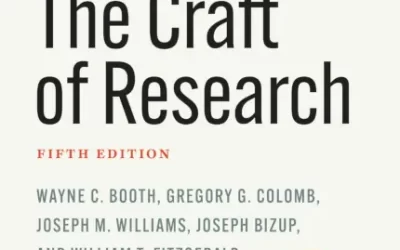Producing a scholarly manuscript is hard work. The process includes researching, editing, finding the right journal, finding the right document format that can allow for collaborative editing, and ultimately getting people to actually read your research and track its impact. Just thinking about all of those steps is already giving me a migraine. I mean I’m struggling to write this blog post and it’s less than 500 words. Yet this is a reality for many scientists, scholars, researchers, and technicians who want to publish in an increasingly competitive market. So, in order to reduce some of this stress and perhaps prevent a future nervous breakdown, check out the freely available tools below that can assist in manuscript preparation.
• ACS ChemWorx: Provided by the American Chemical Society, Chemworx is a free service for any researcher including non-ACS members. The tool provides numerous resources to aid authors in manuscript preparation, including a bibliography collaborator that can generate your manuscript’s bibliography from multiple shared folders and shared collaborators as well as easy switching between reference style guides when generating the bibliography. ChemWorx is particularly helpful for non-English speaking authors as it provides a translation and English editing tool that can work together to translate and edit manuscripts in preparation for the peer review process. For more information on ACS Chemworx, visit https://hp.acschemworx.acs.org/.
• Kudos: Kudos is used less in the preparation of manuscripts but can help authors increase their viewership and impact once they are published. The service provides a searchable database for published works allowing authors to reach new institutions and increase their number of citations in future publications. Authors can track the reach of their published works using multiple and varied metrics. The service is free to authors and researchers, although publishers and institutions have to pay a fee in order to access the database’s tools and articles. For more information on Kudos, visit https://www.growkudos.com/about and follow the instructions to set up a free account.
• Overleaf: Winner of the 2016 Red Herring Top 100 Europe award, Overleaf is a LaTeX and Rich Text tool that enables authors to edit directly in LaTex files and enables collaboration in said files among multiple authors. Overleaf is an even more enticing tool thanks to its growing partnership program. The tool recently partnered with the Royal Society of Chemistry, allowing authors to immediately publish their manuscripts to any journal of choice in this particular society. If you visit the tool’s website (https://www.overleaf.com/), you can see the list of other journal societies and associations that utilize similar immediate submission partnerships with Overleaf.
• Journal Finder: While certainly a more specialized tool, Elsevier’s Journal Finder helps authors to find the best journal to submit their manuscript by running an algorithm using the paper title and abstract text. The catch with this tool is that the search database only includes Elsevier journals; however, considering that Elsevier includes more than 2,000 journals within its organization (and the search function is free without the need for an Elsevier membership), it’s not a bad starting point. The tool also provides information for journals that show up in the results section, including impact factor, acceptance rates, and journal mission statements. For more information, visit http://journalfinder.elsevier.com/.




